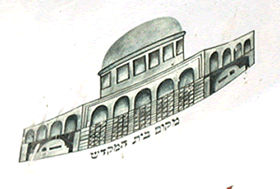Over Shavous, I had the privilege to hear Rabbi Yerachmiel Milstein speak a few times. He was excellent.
One of the things that Rabbi Milstein said that really struck a chord with me was: “Don’t be a puppet”. Don’t let others (here he included peer pressure and the media) make your choices for you. The other side of the “Don’t be a puppet” warning, Rabbi Milstein explained, is not to become a puppet to the you that you were yesterday.
Life is full of decisions, big and small. Often, we make the right decisions for ourselves, for where we are now. That’s good and important. However, just because a decision was good for me yesterday doesn’t mean it’s good for me today. As growing individuals and growing Jews, it’s incumbent upon us to continually take stock of ourselves and our life decisions of yesterday.
The way I analogize it is by thinking about when I learned to cross the street on my own. I don’t know precisely how old I was but let’s say 10. When I was 9, my parents felt that I wasn’t old enough, not responsible enough to cross the street on my own. That was a good decision for the 9 year old me. When I turned 10, they saw that I had changed, was more responsible and would take the privilege and the safety issues seriously. That was the right decision for the 10 year old me.
Circumstances change, people change (hopefully) and that necessitates a reevaluation of the decisions we made for the person we were yesterday.


 The Abuhav Synagogue in Tzefas, Israel is one of the most beautiful shuls I’ve been in. It is ornately painted and was constructed along the theme of the Pesach song Echad Mi Yodea (Who Knows One?) .
The Abuhav Synagogue in Tzefas, Israel is one of the most beautiful shuls I’ve been in. It is ornately painted and was constructed along the theme of the Pesach song Echad Mi Yodea (Who Knows One?) .